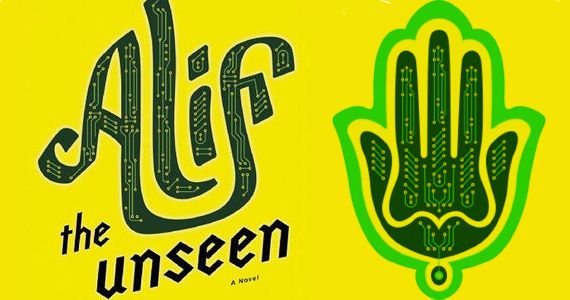If there’s one thing that a quick look at the current state of television and movies will tell you, it’s that there’s not much need for original ideas when there’s so much out there ready and waiting to be adapted, updated or just outright ripped off. That’s why we’ve decided to help in that process with a series which offers up some of the things we’d like to see being brought to big screen or small. This week’s suggestion? Alif The Unseen.
What Is It?
Alif is a novel by G. Willow Wilson - maybe better known to some of you as the writer of Cairo and Air for DC Comics' Vertigo imprint, or perhaps Mystic for Marvel Comics - that, in terms of high concept, could be described as "Harry Potter meets the Arab Spring meets hacker culture." If you read that and think "Well, that sounds great," then you're right; it's an amazingly enjoyable, wonderfully humanistic story about Alif, the titular character, who operates as an online defender of organizations, groups and individuals whose web presences may be deemed unpalatable by the authorities, and what happens to him when he finds himself targeted by those authorities. That the reason for his targeting has less to do with his online activities and more to do with the magical book that has mysteriously ended up in his possession isn't something that he realizes until some time into the novel, of course, but that's just part of the fun. Mixing magical thinking, fairy tale logic, politics and a dose of romance - and all mixed together with some great prose from Wilson - it's the kind of book that you'll genuinely find hard to put down.
What Could It Be?
Reading through the book, I kept thinking that Alif would make an amazing movie, if it had the right director. It's not just that it's very much in that Harry Potter/The Hunger Games sweet spot of being a well-written, very visually-strong young adult novel that made me convinced that it could translate well to film - There are alternate dimensions and magical creatures in the book that just beg for some ambitious designers and visual effects masters to try and bring them to life - but the fact that, underneath everything, it has a very easy-to-understand classic structure in terms of characters' interpersonal relationships and the greater narrative; there's even a showdown between Alif and his nemesis towards the end that is exactly the kind of thing that movies know how to do so well.
And yet… it's the "everything" part that worries me, in terms of "underneath everything." Because what makes Alif so interesting, enjoyable and unique amongst its peers is the glimpse into Middle Eastern culture (and Western intrusions therein; there's an American student who acts as a fascinating metacommentary on that, in there too) it offers, and I worry that any attempt to bring this book to life would risk that. Wilson, an American who lives in the US and Egypt, writes about the culture - and culture clashes, when it comes to tradition meeting technology - with such grace and delicateness that it's hard to imagine others being able to translate that with such skill. Whoever was given the job of bringing this book to live-action screen life would need to be more careful than most in ensuring that they didn't either flatten or overly-exaggerate what Wilson has managed to do in prose.
So who should do this? Perhaps because of Slumdog Millionaire, I find myself leaning towards director Danny Boyle; it's actually both his Millions and A Life Less Ordinary that really make me convinced that he could do the job, although I suspect that having that 28 Days Later credibility wouldn't hurt his chances either, should it ever happen. In terms of actors, I find myself wanting to stay away from anyone famous for the leads - Both Alif and Dina, his neighbor and ultimately co-conspirator in everything that happens, are young kids and as such should be unknowns, I think (Look how well it worked out for Moonrise Kingdom); let the familiar faces take the roles of Vikram or The Hand or some of the (still interesting, but) background characters, if anyone. That way, the budget might stay down, giving Boyle (or whoever) a chance to stay as true to the book as possible without fear of having to mainstream everything for "wider appeal."
Alif The Unseen is currently a novel that manages to say a lot of important things in such a way that you're drawn in and listening without even realizing it. If that could be translated into a movie intact, it could end up seeming like a work of magic as powerful as anything that happens inside the story itself.

